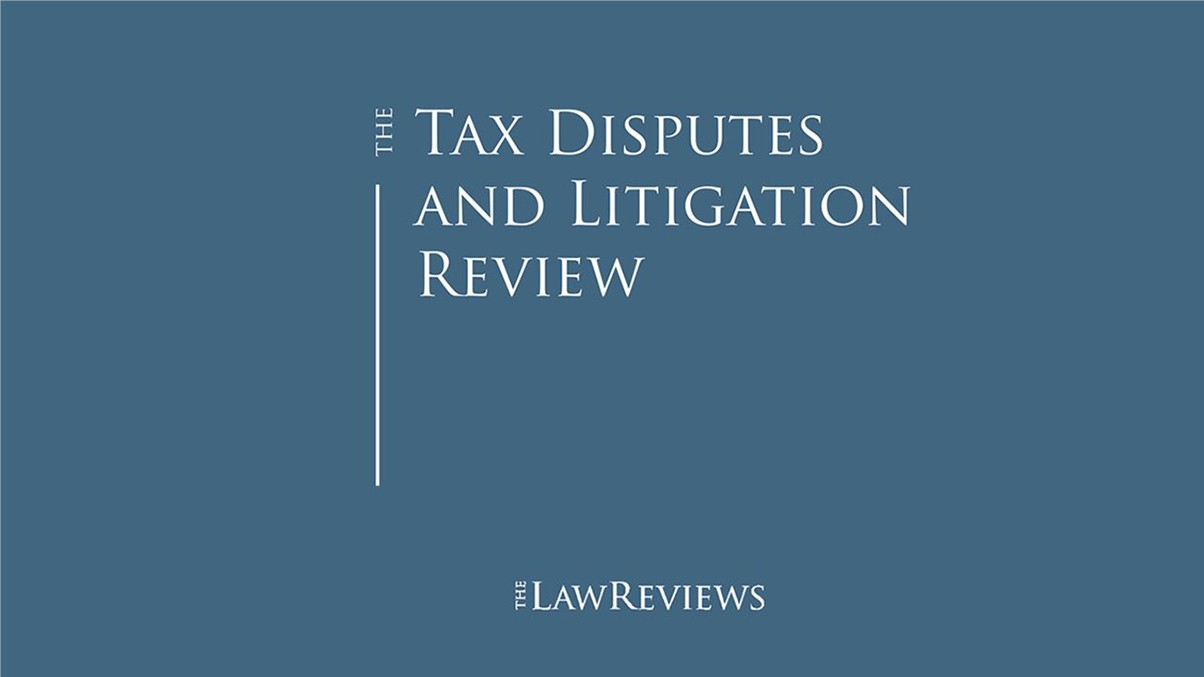Global markets are under serious strain and are bracing for further economic headwinds. The risk of corporate failure is high. Set against that backdrop, the government’s introduction of an audit reform bill (albeit in outline form) is welcome.
In the first of a series of blog posts on the audit market, David Pickstone, James Le Gallais, Alex Lerner and Grace Spurgeon consider whether the audit reform bill will deliver much-needed change in a timely fashion and the likely consequences if it does not.
What went wrong?
Misfortune never comes singly, but sometimes the occurrence of multiple unfortunate events is not misfortune at all. It is a symptom of market failure. One has only to look at a succession of incidents between 2014 and 2019 to understand the issues facing auditors, audited companies and accountancy firms more generally. For example:
- In November 2014, an investigation by the International Consortium of Investigative Journalists revealed confidential information about Luxembourg tax rulings between 2002 and 2010. The so-called ‘Luxembourg Leaks’ triggered investigations into the tax affairs of major multinational corporations, including McDonald’s, Amazon and Ikea. As a consequence, the European Commission concluded that the “Excess Profit” tax scheme was illegal under state aid rules and that approximately €700m was to be recovered from 35 multinational companies.
- In 2016, the Financial Reporting Council (FRC) announced it was investigating Sports Direct’s auditors for failing to disclose the relationship between Sports Direct International (now Frasers Group, in which Mike Ashley is the controlling shareholder) and a company controlled by Mike Ashley’s brother. The non-disclosure related to Frasers Group’s use of a VAT scheme. The scheme involved contracting out deliveries to a company set up by Mike Ashley’s brother, which had no vehicles or drivers. Potential losses to European tax authorities resulting from various companies’ use of this scheme are likely to be significant, perhaps running into the billions, and litigation is likely to follow.
- Between 2016 and 2019, there was a succession of high-profile insolvencies in the UK, involving the likes of BHS, Carillion, Conviviality, London Capital and Finance, Patisserie Valerie, Thomas Cook and Stagecoach. These insolvencies had serious implications for the UK economy in terms of job losses, pensions deficits and impacts on small and medium-sized enterprises. In some instances, they have also given rise to heavy litigation.
Unsurprisingly, there is consensus in the market that reform is needed.
The long road to reform
Since the collapse of BHS, there have been three major reviews on audit reform, a Department for Business, Energy and Industrial Strategy (BEIS) consultation paper (to which the government has recently published its response) and an outline draft audit reform bill (included in the supporting papers for the Queen’s speech in May 2022).
First, in 2018, Sir John Kingman led an independent review of the FRC to ensure it could fulfil its corporate governance function and to safeguard the reputation of the UK as a world-leading financial and commercial hub. The Kingman Review made 83 recommendations, including replacing the FRC with a new independent regulator, the Audit, Reporting and Governance Authority (ARGA), which would be accountable to parliament.
The Kingman Review was scathing in its assessment of the FRC. It described it as a “ramshackle house”, and, strikingly, the CEO of the FRC, Sir John Thompson, agreed. He accepted that the FRC had been “asleep at the wheel”. He also said: “Were we complicit or in some way responsible for corporate failure? Well, it’s probably arguable that as a regulator we weren’t anywhere near strong enough, we weren’t big enough, and we weren’t transparent enough to make a difference to the system.”
Second, in 2019, the Competition and Markets Authority produced a market study into the statutory audit market, which concluded that, among other things, the Big Four should introduce an operational split between their audit and non-audit businesses to ensure focus on audit quality.
Third, also in 2019, Sir Donald Brydon produced a report into the quality and effectiveness of statutory audit in the UK. His report called for urgent reform to win back public and shareholder confidence in audit and avoid further “unnecessary corporate failures”.
Next, in 2021, BEIS published a consultation paper called ‘Restoring trust in audit and corporate governance’. BEIS’s consultation proposed wide-ranging and major reforms for the audit industry, including:
- a wider definition of so-called ‘public interest entities’ (PIEs) to make more large businesses of public importance subject to regulation, whether or not they trade on a regulated market. (The proposed definitions under consideration were (i) more than 2,000 employees or a turnover of more than £200m and a balance sheet of more than £2bn or (ii) over 500 employees and a turnover of more than £500m. It was estimated that definition (i) would increase the number of PIEs by approximately 1,960 PIEs, whereas definition (ii) would lead to an increase of 1,060 PIEs);
- greater accountability for directors, including proposals to address the lack of board reporting on the adequacy and effectiveness of internal controls and risk management;
- new corporate reporting requirements, including an annual resilience statement covering business resilience over the short, medium and long term to consolidate and build on existing going concern and viability statements;
- the establishment of a new ‘standalone’ audit profession with a regulatory framework to cover both audit of financial statements (statutory audit) and audit of other information (wider audit);
- a new proposed ‘purpose’ of audit, being to “help establish and maintain confidence in a company, in its directors and in the information for which they have responsibility to report, including the financial statements”;
- duties to take a wider range of information into account when conducting audits (such as director conduct);
- duties to report on anti-fraud measures;
- operational separation between audit and non-audit practices within major accounting firms;
- publication of audit quality review reports on individual audits to be published by the regulator without the need for consent from the audit firm and audited entity;
- the FRC to take responsibility for the registration of auditors of PIEs from recognised supervisory bodies; and
- for ARGA to be given two operational objectives (a quality objective and a competition objective), supplemented by regulatory principles and a host of statutory powers intended to strengthen its position as regulator.
In early May this year, an outline for the draft audit reform bill was included in the supporting papers for the Queen’s speech. Although detail was lacking, the main elements of the bill were:
- Establishing ARGA to protect and promote the interests of investors, other users of corporate reporting and the wider public interest;
- Providing new measures to open up the audit market, including a new approach of managed shared audits in which challenger firms undertake a share of the work on large-scale audits. (The intention here is to improve the quality and usefulness of audit and boost resilience, competition, and choice in the audit market, but whether managed shared audits are workable and effective in practice remains to be seen.);
- Bringing the largest private companies in scope of regulation via the definition of PIEs and recognising the public interest in such companies;
- Giving ARGA effective powers to enforce directors’ financial reporting duties, supervise corporate reporting, and oversee and regulate the accountancy and actuarial professions;
- Reforming the regulation of insolvency practitioners to give greater confidence to creditors and strengthening the corporate governance of firms in or approaching insolvency so that ‘asset stripping’ can be more effectively tackled.
Then, on 31 May, the government published its long-awaited response to BEIS’s consultation paper. The government’s response envisages a substantial scaling back of BEIS’s ambitious proposals. Most notably, the scope of the definition of PIE has been significantly narrowed (to £750m or more turnover and over 750 (global) employees). In addition, several proposed measures, such as the requirements for a Resilience Statement, an Audit and Assurance Policy, directors’ statements on steps taken to prevent and detect material fraud and new measures on dividends and distributable reserves, will only apply to PIE companies.
Further, proposals regarding audit purpose, scope and auditor liability have been left for ARGA to implement and/or for the market to shape, while the proposal for establishing a separate professional body for audit has been dropped. However, measures regarding managed shared audits and the operational separation of audit and non-audit businesses have survived.
Analysis
A lot of (worthy) ink has been spilled in the name of audit reform, and some progress has already been made. For instance:
- Work has already begun to establish ARGA, and the FRC announced its principles for the operational separation of the audit practices of Big Four firms in 2020.
- In 2021, the FRC published a revised UK standard for auditors’ responsibilities relating to fraud in an audit of financial statements (ISA (UK) 240) and began publishing summaries of its corporate reporting reviews.
- Ernst & Young has recently announced that it is drafting plans for a voluntary split of the firm’s advisory and audit divisions (to be considered and voted on by the firm’s partners. If approved, the move would go further than ‘operational separation’ because it would create two separate companies altogether).
- Research from Ernst & Young shows that 67 of the companies in the FTSE 100 have already taken steps to enhance their internal controls over financial reporting. Many have also taken steps to assess and improve components of their fraud risk framework.
Despite that progress, and even though reform is now firmly on the legislative agenda, it is difficult to escape the conclusion that inertia for reform has done little to mitigate the risk of litigation, particularly for audit firms. Had reforms been implemented more quickly, they could have offered a degree of protection against the exact sorts of issues that gave rise to the tax scandals and collapses noted above. Add rising inflation, rising energy prices, supply chain disruption, the war in Ukraine and the fact that markets are still dealing with the ongoing impacts of the pandemic and Brexit to the mix, and it would hardly be farfetched to put money on more litigation resulting from the next major collapse or tax scandal. It is more than likely the next one is already brewing.
The reality is that there is no comprehensive plan as to when and how audit reform will be implemented. It is unlikely that legislative reform will be introduced until after June 2023 (albeit some reforms will be implemented without legislation) and ARGA will likely only be established in or after April 2024. Events in the wake of Boris Johnson’s resignation may even further delay legislative reform. What is more, the government’s response to BEIS’s consultation indicates that its appetite for reform has been significantly scaled back.
An opportunity to reform the UK business ecosystem is being passed up. Knowing that a watered-down set of reforms is on the horizon will likely be cold comfort to auditors, investors and other stakeholders caught up in the next major collapse. Audit firms such as Ernst & Young and those in the FTSE 100 that have taken it upon themselves to drive change in their own businesses are to be commended. These companies will likely reap the rewards as a result. However, as far as the market at large is concerned, it looks as though audit reform will ultimately deliver too little, too late. Audit firms in particular are likely to continue to be targeted as the ‘deep-pocketed’ defendants of choice.
Our next article in the series will look in more detail at the sort of claims against auditors that have arisen in recent years and potential areas of litigation in the coming years.
You can find further information regarding our expertise, experience and team on our Tax Litigation and Resolution pages.
If you require assistance from our team, please contact us.
Subscribe – In order to receive our news straight to your inbox, subscribe here. Our newsletters are sent no more than once a month.







